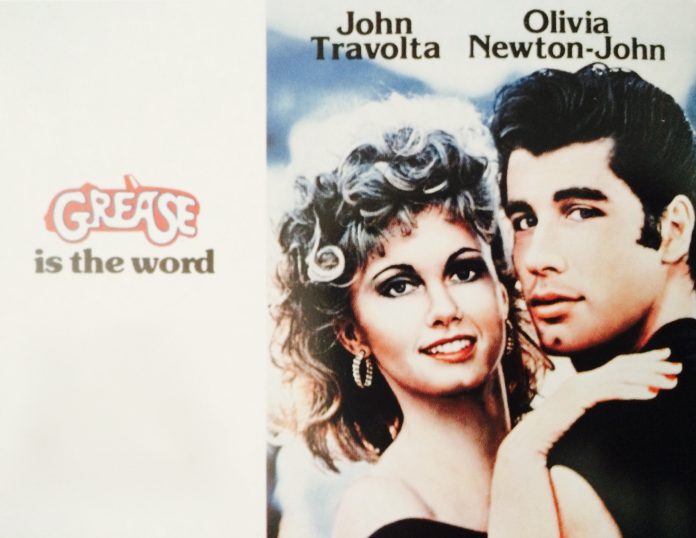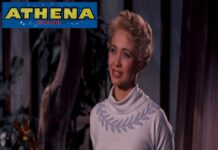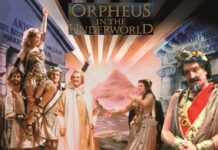In this post, I’ll reveal the secret meaning of Grease and tell you what that weird flying car scene at the end of the movie Grease really meant.
By the way, why do you think the filmmakers wanted to end the movie Grease in this bizarre way, with Sandy (Olivia Newton-John) and Danny Zuko (John Travolta) flying through the sky in their flying car?
Think about it for a second.
Don’t know, not sure, well it doesn’t matter, because in this post I’ll reveal the secret meaning of the movie Grease which will give you this answer and many more surprises!
Reading the whole article is the way to go if you want to better understand Grease. Keep an open mind and hopefully by the end, it will all make perfect sense.
The True Meaning of Grease
1. Grease (1978)
Here it goes:
High school gang leader Danny Zuko, a demigod, and son of Zeus transforms his girlfriend Sandy into an immortal Greek Goddess and brings her back to Mount Olympus in his flying chariot.
This statement pretty much sums up the movie Grease.
Pause for a moment and breath. Let it sink in for a moment. It may be worthwhile reading the above bold statement one more time.
Right now, you might be thinking, “Hell no, Grease can’t have anything to do with the Greek Gods.” Well, it does, and soon you’ll understand why.
Classical Greece
The movie is titled ‘Grease’ because it parallels classical Greece. Even though Grease was filmed in 1978, the movie was actually set back in 1958/59.
This is like going back in time to a different era.
It goes back even further than that, by bringing to mind the Hellenic Golden Age, which I’ll try and prove to you.
Zuko the Demigod, Son of Zeus
Zeus and Zuko both sound similar at the beginning when pronouncing both their names because Zuko is a demigod. This is definitely no coincidence.
Who has their last name starting with Z anyway? Ok, I did think of Titanic star Billy Zane pretty much straight away, but that’s beside the point.
Zeus and Zuko start off sounding the same because Zuko is the son of Zeus. Yes, Zuko is the son of the top Olympian God.
Remember, Zeus has had many affairs with humans, and the offspring of a God and a human is a demigod, which means that Danny Zuko is half God, half-mortal. This is the reason why only half of his last name sounds like Zeus.
Thunder – The Power of Zeus
The true meaning of the movie Grease is actually given away when Danny Zuko gets to drive the Greased Lightning car in the drag race on Thunder Road. Thunder, hint… hint.
Thunderbolts are clearly the main weapon of Zeus, God of the Sky. We have to assume that Zeus had a plan.
Zeus, king of the Gods, obviously wanted Danny Zuko, his demigod son, to be in the car race instead of Kenickie (Jeff Conaway).
To make it happen, Zeus struck Kenickie in the head with a thunderbolt as he crouched down to pick up a penny for good luck.
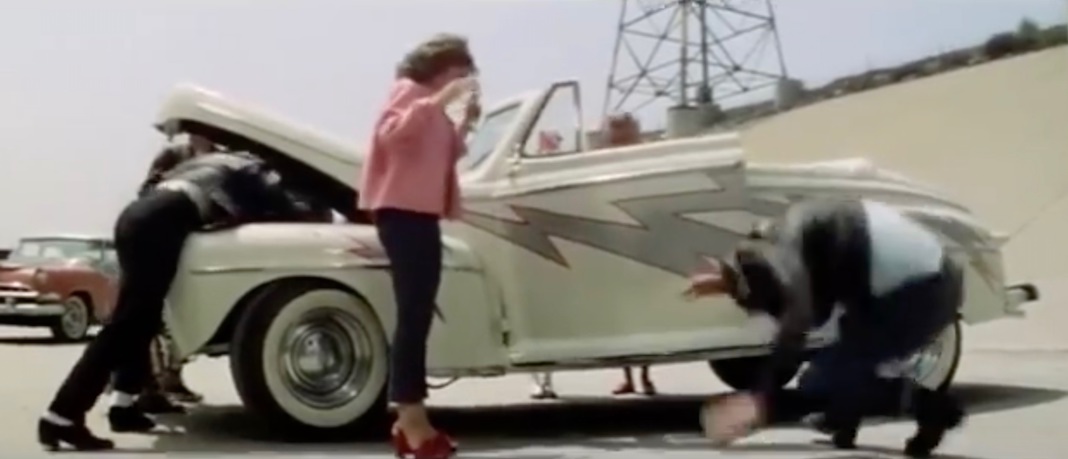
This divine act is seen when the car door with the symbolic thunderbolt running through it suddenly opened and hit Kenickie in the head, which inevitably forced him to pull out of the car race.
After being knocked out, dazed Kineckie tells Danny Zuko that he can see two of him. Obviously, there was only one Zuko, not two.
This statement confirms the half God/half-mortal theory because half is one of two equal parts that together make a whole.
Zeus’ divine act achieved the desired outcome, which led to Danny Zuko (John Travolta) becoming the race car driver. All hail Zeus and the thunderbolt.
Hopefully, the penny has dropped for everyone now. If the penny drops, it means you suddenly understand something. Put two and two together for yourself.
We have a penny dropping to the ground like a thunderbolt from the hand of Zeus, a thunderbolt symbol, and one sore head. What else could it mean?
Notice the Thunderbird badge in the Opening Credits of Grease
Do you think the black leather jacket-wearing T-Birds were secretly known as the Thunder Birds? If so, then here is another strong association with thunder.
In the opening credits, when numerous images flash by during the cartoonish theme song of Grease, you’ll see a Thunderbird badge from a Ford motor vehicle flash by on the screen for about one second.
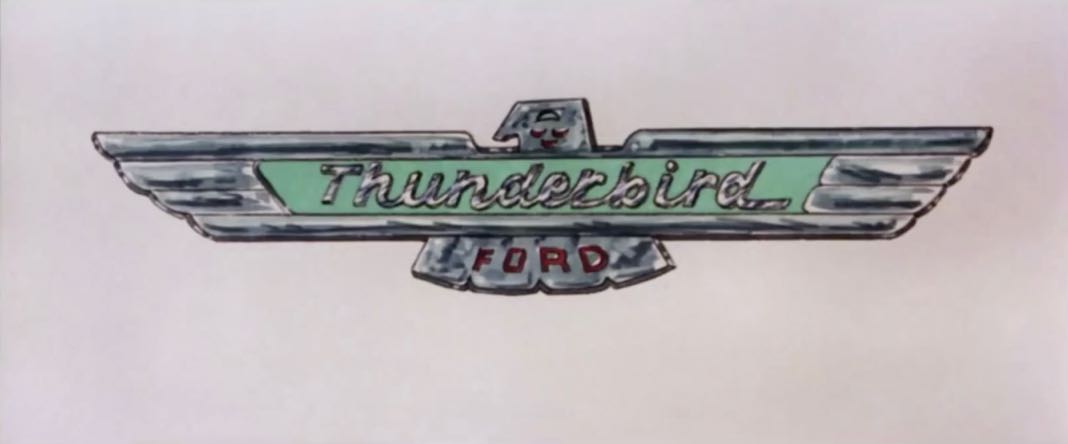
It appears so fast that it’s difficult to notice, especially with all the other weird images flashing even faster on the screen just before the Thunderbird badge appears.
Weird Images in the Opening Credits of Grease’s Theme Song
Quite a few bizarre seemingly unrelated images, possibly shown to distract attention, flash on the screen for about half a second each, just before the appearance of the Thunderbird badge. You pretty much have to pause the song to see them properly.
The weird images in the theme song of Grease appear to include:
- Lucille Ball in a scene from her 1950s TV show I Love Lucy. She’s holding a seltzer bottle in one hand and a cream pie in the other. Next to this image is a scene from the 1950s TV show The Honeymooners starring Jackie Gleason. Lucille Ball appears on the screen’s left side, and Jackie Gleeson appears on the right side.
- Joseph Stalin, Communist leader of the Soviet Union. (Possibly as a love/hate metaphor)
- A cartoon drawing of humor magazine “MAD” titled TALES CALCULATED TO DRIVE YOU MAD, overlapped by 4 big wide open red-lipped mouths showing off their white teeth.
- American General Douglas MacArthur with a pipe in his mouth.
- Followed by a couple of other people who could be political leaders (not sure, though).
- Martin Luther King giving a speech behind a microphone.
- A cartoon drawing of the 1953 debut issue of Playboy magazine featuring Marilyn Monroe on the front cover. This image is the one that appears right before the Thunderbird badge.
Whoever came up with this idea definitely had more on their mind than just a song and dance movie. Someone must have had a hidden agenda.
Songs in Grease linked to Zeus and Venus
Another strong association with thunderbolts and lightning in the musical Grease is the Greased Lightnin’ song.
Hammer this into your head: Thunder/Lightning ⇒ Zeus.
Frankie Avalon, a former teen idol, appeared in Grease as Teen Angel. He sang “Beauty School Drop-Out” to pink-haired Frenchy.
Unbeknown to many, Frankie Avalon released the popular hit song “Venus” in 1959. Venus became Frankie’s first number 1 single in 1959, the same time period as the Grease movie setting in 1958/1959.
The song “Venus” was an ode to the Goddess of Love (Aphrodite). What an amazing coincidence. Frankie’s “Venus” and another song called “Why” both went to number one on the Billboard Hot 100 in the same year.
Interestingly, “Why” mentioned the word love over twenty times. It was the last number 1 song of the 1950s. Venus Why? Good question.
Olympus (Paradise) or Hades (Underworld)
One of the most important and enjoyable scenes in Grease is the legendary car race on Thunder road.
The 1949 Mercury Custom black convertible with bright orange/yellow flames driven by Zuko’s arch-rival and nemesis (leader of the Scorpions) has been nicknamed Hell’s Chariot. It was put on sale for $600,000 in 2015.
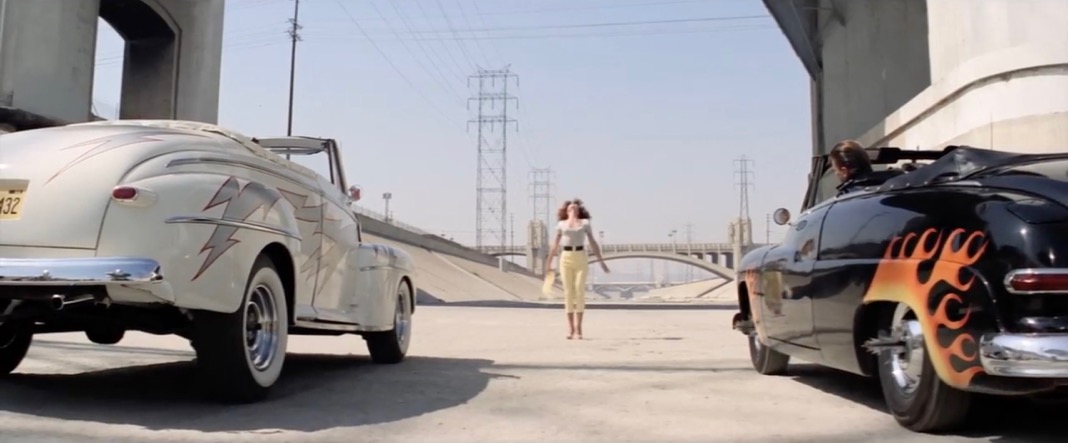
This is why Zuko’s car on the left has to represent the Olympian’s heavenly chariot. What’s the opposite of hell? The answer is Paradise, which in other words is Olympus, the Elysian Fields, Heaven, and even Xanadu.
As you can see from the above picture, Hell’s chariot has serrated metal blades sticking out of the wheel’s hubcaps. This implies a modern-day chariot race in the same vein as the iconic ancient chariot race seen in the blockbuster movie Ben-Hur (1959).
In Grease and Ben-Hur, the villain uses serrated blades to destroy his opponent’s chariot, hoping to increase their own chances of winning the race.
Chariot races remember were popular during ancient Hellenic and Roman times. They were even held at the Ancient Olympics. Cheating at the chariot races during the Olympics would’ve been extremely silly, though.
Who would want to risk getting on the wrong side of the Greek Gods?
Mercury (Hermes) – Guide of souls to the Underworld
Greek God Hermes (Mercury) is the God of travel and messenger of the Gods. He also guides souls to the underworld (Hades).
For Zuko’s arch-nemesis to have raced in a Mercury model vehicle indicates there was way more on the line than just car ownership papers.
Leo (Crater Face – Leader of the Scorpions): “We’re racin’ for pinks.”
This statement didn’t solely mean that the winner would get the other’s car. Pink slips are a slang term for car ownership papers, by the way. In this case, they were also racing for the Pink Ladies. Were the girls destined for Olympus (heaven) or the Underworld (possibly hell)?
It’s as if Zeus, Poseidon, Hades, and Hermes (Mercury) all had a vested interest in the race. Poseidon even stirs the pot in the race by using water to stop Hell’s Chariot in its tracks.
This great car race was held on the dry cement river bed of the Los Angeles River. It started under the 6th Street bridge and proceeded north, with the turning point just after the 1st Street bridge in real life.
Could this have been a journey to the Underworld and back? It was as if Hermes (Mercury) took Zuko along the River Styx to the Underworld and then returned him to the upper world again.
For what reason, I’m not sure, though it truly would’ve felt like hell if Zuko had lost the car.
Grease Film Locations
Can you believe it, the Spartans, those fierce warriors from ancient Greece, are also linked to Grease.
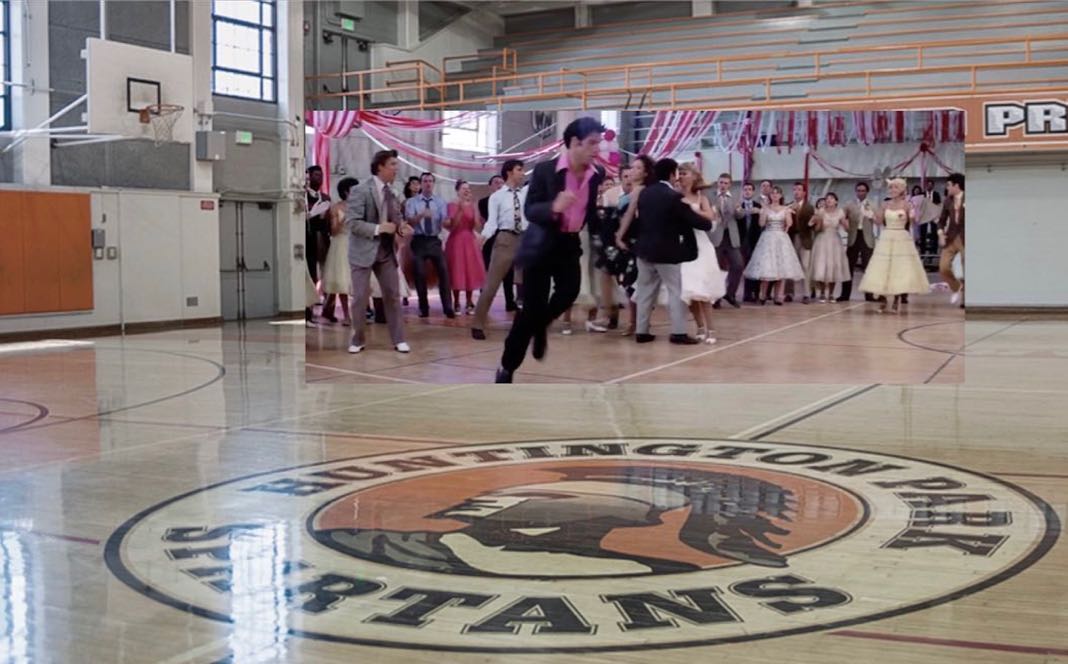
The televised National Bandstand Dance Contest at Rydell High School was filmed inside the Huntington Park High School gym. This real-life high school’s mascot is the Spartan warrior, as you can see from the “Huntington Park Spartans” logo in the above picture, seen inside the same gymnasium.
Huntington Park High School’s newspaper is even called the Spartan Shield.
I wonder if John Travolta knew he was dancing on the Spartan’s home turf?
The fictional Rydell High School in Grease was filmed using three different American high schools, including Venice High School (the outside), Huntington Park High School (the interior), and John Marshall High School (the school field).
Someone obviously had the grand idea for the Spartans to be associated with Grease. Or did the Spartans come later? Either way, the Spartans had to be associated with Grease (Greece).
The flying car scene at the end of Grease
When Sandy (Olivia Newton-John) and Danny Zuko (John Travolta) fly off into the sky inside their red Grease Lightning hot rod chariot at the end of the film, it signifies the dream/reality of making it to Mount Olympus as an immortal God or Goddess.
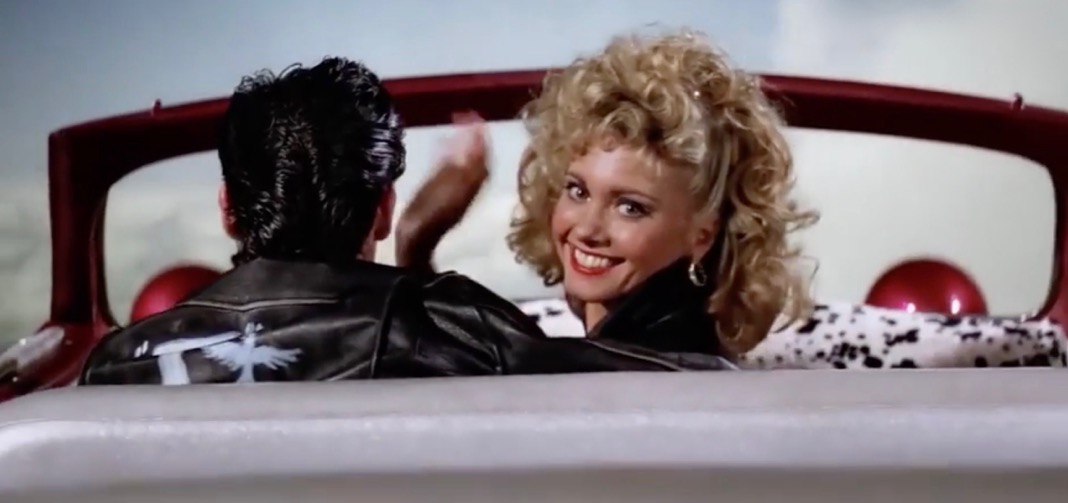
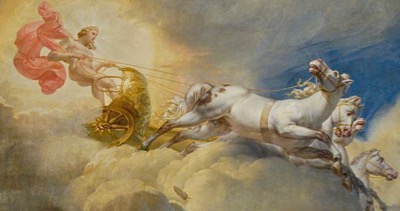 In ancient Greece, there were numerous Greek myths involving flying chariots. For instance, Apollo had one. When you think about it, flying horses pulling chariots, flying cars, what’s the difference?
In ancient Greece, there were numerous Greek myths involving flying chariots. For instance, Apollo had one. When you think about it, flying horses pulling chariots, flying cars, what’s the difference?
The peplum sword and sandal movie Mars, God of War (1962), also known as Venus against the Son of Hercules, ends the movie in the same way.
At the end of this film, the two lovers are seen flying through the sky inside a horse-drawn chariot on their way to Olympus in a similar fashion.
Understanding the Philosophy behind the movie Grease
Now let’s discuss the opening theme song in more detail. The Thunderbird badge in the theme song near the beginning of the movie was positioned very strategically. Another thing you’ll notice is that it quickly grows in size after being zoomed on.
Right after the Thunderbird badge, three animated T-Birds (Acolytes) appear for the first time in a groovy dance scene.
In my opinion, this is a big enough hint to assume that the T-Birds could also be known as the Thunder Birds. Remember Thunder ⇒ Zeus.
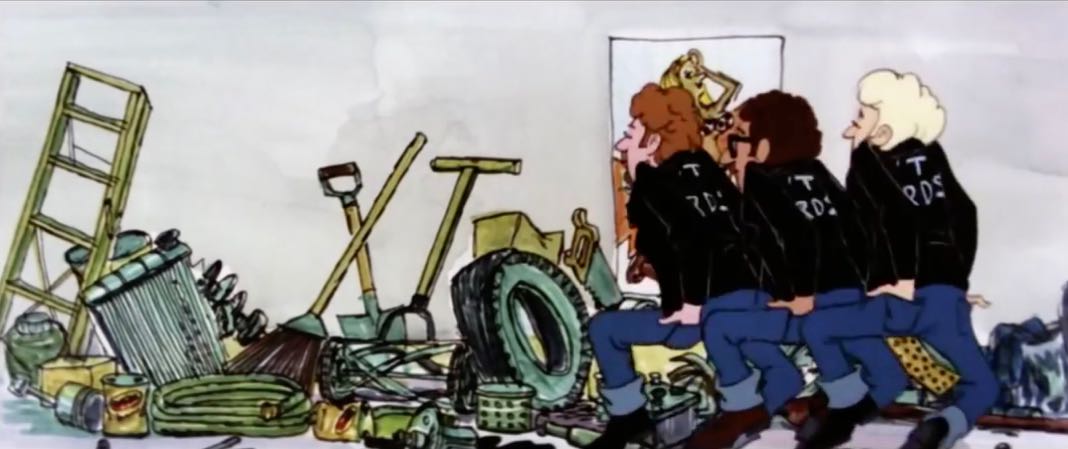
In the above scene, the three T-Birds (Acolytes) are about to turn around.
When the guys do, the lyrics of the Grease song offers a deep philosophical suggestion.
~ This is a life of illusion ~
This is a profound statement for such a light-hearted movie, or is there more to it?
Plato’s Allegory of the Cave and the free T-Birds
It almost suggests a philosophical concept similar to that of Plato’s Allegory of the Cave. Here though, it is opposite to that of the famous philosopher from classical Greece.
Plato’s cave tries to explain the illusory state of a few lifetime prisoners who have been chained inside a cave since birth. On top of that, you have to imagine that these unfortunate lifetime prisoners are unable to turn their heads.
They’re forced to look at a cave wall flickering with shadows due to a bonfire burning behind them in the background. As people, animal statues, and other objects pass between the flames and the prisoners’ backs, shadowy images flickering on the cave wall seem to be normal life experiences.
The lifetime prisoners actually believe they’re living in the real world since that is pretty much all they’ve ever seen and experienced. As most of us know, the images the prisoners see on the cave wall are definitely illusions.
It just goes to show you that you can never be sure about the state of things, especially if you’ve been blind since birth.
In contrast to Plato’s cave, these three cool T-Birds seem to be totally free. They can turn their heads around in the man cave (garage), no problem.
The T-Birds and Olympus
The above cartoon theme song scene also shows the three of them standing in front of a poster with a gorgeous blonde goddess on it. At the bottom of the poster on the left-hand side are the words SPARK PLUG (possibly SPARK PLUGS) shown inside an electric spark flame.
A spark plug is used in car engines to ignite the fuel. The informal definition of a spark plug is a person who leads, inspires, or animates a group.
As the three T-Birds (Acolytes) turn around in the clip, they introduce Danny Zuko with a hand gesture as if they’re introducing their leader (demigod).
The main thing to take away from all of this rubbish is that the T-Birds are symbolically associated with the sky (Olympus/heaven). They obviously have “Birds” in their gang name for further validation. This is because birds are more often associated with the sky, more so than the ground (earth) or water.
Right now, I think it’s safe to deduce: Thunder/birds ⇒ Gods/sky/Olympus
If you’re still not convinced, then this should do the trick.
The GODS sign in the opening credits of Grease.
Take a closer look at this scene from the opening credits of the Grease song. The guys do a burnout right in front of a movie billboard. Grey smoke then covers the billboard sign completely as they drive past.
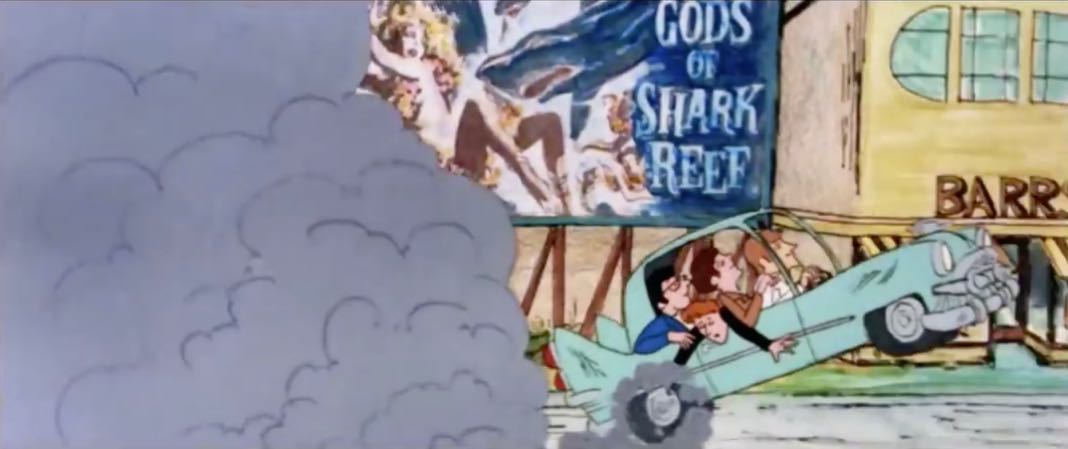
The smoke almost covers the whole screen. This is actually a smokescreen, and the definition of a smokescreen is a ruse designed to disguise someone’s real intentions or activities.
Is the movie Grease really about the Greek Gods? Maybe there’s a message here. The “GODS” sign seems to be a big indicator.
The Pink Ladies also drive past the same billboard.
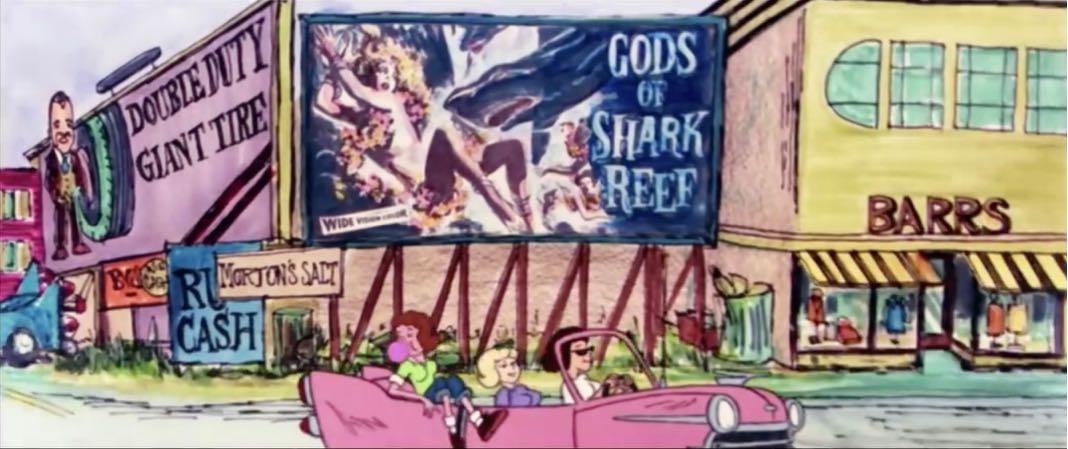
I like how the girl in the back seat of the Pinkmobile is blowing a pink bubble with her chewing gum.
She Gods of Shark Reef
Surprisingly, there’s a real-life movie called She Gods of Shark Reef, which came out in 1958, the same year as the Grease movie setting.
For some reason, Grease’s billboard doesn’t show the “SHE” in the movie title as the original movie poster does.
Take a look at the original movie poster shown below advertising the film SHE GODS FROM SHARK REEF. You can clearly see that the lady in the movie poster matches the billboard lady in the Grease cartoon song clip.
I wonder why they left out “SHE” on the billboard title in Grease?
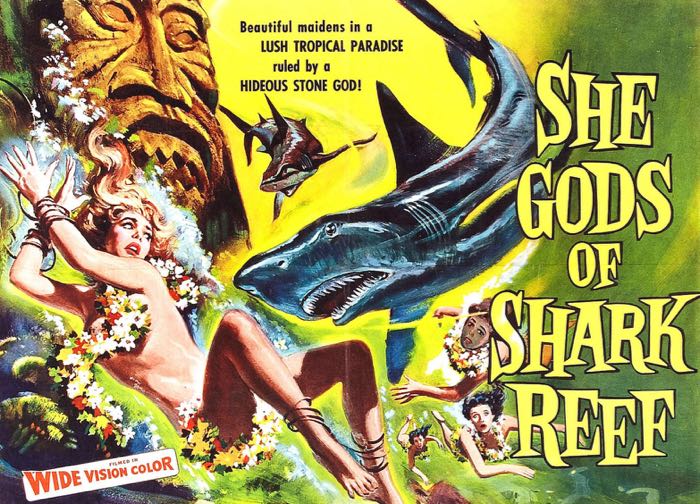
The movie poster seems to suggest the movie is about paradise, nymphs, gods, and goddesses (she-gods).
Why did Grease’s creators choose to immortalize a very obscure movie like this one with “GODS” in the movie title? There are loads of movies from 1958 which could have been placed on that cartoon billboard. Why the smokescreen (burnout) in front of this particular unknown film?
You’re probably eager to listen to the first song in Grease (opening credits) for yourself now. Take a look for yourself.
Fan theory regarding the beach scene at the beginning of Grease
Let’s clear one thing up. Sandy definitely didn’t drown at the beach at the beginning of the movie Grease and dream about everything, as one popular theory suggests.
It’s the exact opposite.
Sandy becomes an immortal Goddess.
Sandy and Zuko both transform themselves at the end of the film, symbolically represented by Sandy wearing black stretch pants and Zuko wearing the white jacket.
Zuko is willing to live as a mortal to be with Sandy. At the same time, Sandy is also willing to become immortal.
Zuko wants to take Sandy to the top of Mount Olympus, which is alluded to when Zuko hits the top bell in that carnival sledgehammer game. It was like a phone call to the Gods.
Romantics can rejoice. The Olympian Gods approve of the match and allow the lovebirds to make their way to Olympus (Greek Gods Paradise) in their flying chariot (dream car).
There you have it, the secret meaning of Grease!
Some of you may think that this theory of Grease is garbage, but hey, what about the theory that Sandy drowned at the beginning of the movie and dreamed it all up.
Out of these two theories, I’m sure you’ll agree that this explanation is much better.
One thing’s for sure, Olivia Newton-John is definitely a Goddess. Keep on reading, and you’ll find out why.
You’ll then understand the bigger picture and learn about the hidden message the Greek Gods and Goddesses have given to the world.
Grease, The Warriors and Xanadu – The Trilogy
The film Grease fully resonates with Greek mythology, and two more related movies prove without a doubt that Grease is truly about the Greek Gods and Goddesses.
Grease (1978), The Warriors (1979), and Xanadu (1980) form an incredible Greek myth trilogy.
See how they perfectly line up – 1978, 1979, and 1980. For some extra magic, Xanadu was released on 8/08/80.
2. The Warriors (1979)
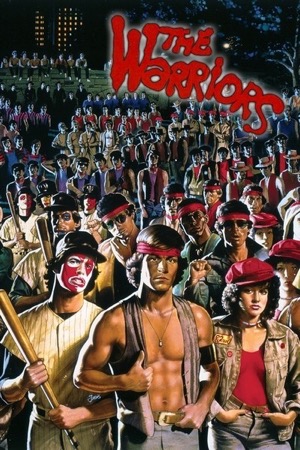
You may be wondering how ‘The Warriors’ film is in effect a sequel to the movie Grease.
Yes, I know there is a Grease 2 film starring Michelle Pfeiffer, but forget about that one.
Many of you probably haven’t even seen ‘The Warriors’ even though it is a cult classic.
The Warriors is seriously one of the best gang movies of all time, if not the best!
If you’re a guy and you haven’t seen ‘The Warriors,’ do yourself a big favor and watch the film.
The Warriors is really a movie for guys, though I’m sure it would be of interest to a few film fans of the opposite sex.
The Warriors Explained
That said, no one needs to watch it to understand how the film is linked to Grease.
You just need to know a couple of things.
- Danny Zuko (John Travolta) was the super cool leader of the T-Birds in Grease.
- Swan (Michael Beck) was the leader of The Warriors, a tough New York street gang.
The Warriors movie (1979): Ancient Greek Warriors gives a more detailed explanation of the movie in terms of Ancient Greece, Greek Warriors, and Greek Mythology.
You don’t need to read it, but if you want to you can.
The main point I’m trying to make is that ‘The Warriors’ has mythical overtones.
Everything will fall into place in the next section when I tell you about the third and final film in the trilogy, Xanadu.
3. Xanadu (1980)
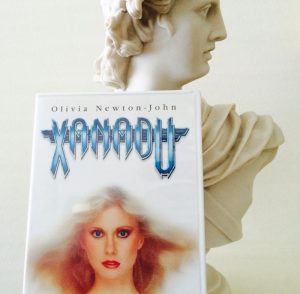
Olivia Newton-John confirms the movie Grease (1978) is based on Greek mythology when she falls for Sonny Malone in the film Xanadu.
Kira (Olivia Newton-John) is one of the 9 immortal Muses from Greek mythology in Xanadu.
The Greek Goddess arrives on earth to help a disillusioned young artist named Sonny Malone reach his full potential. She achieves this by inspiring him to open up a roller-skating disco nightclub called ‘Xanadu.’
For those of you who don’t know, Xanadu is another word for paradise.
The album cover Kira appears on at the beginning of the film is titled NINE SISTERS for a good reason.
Her real name, which she keeps mostly secret, is actually Terpsichore, the Goddess of dance and chorus.
She actually reveals it in the scene where she tells Sonny that she’s a Muse and a daughter of Zeus.
The Goddess reveals her real name when she says it’s Ter…, which she doesn’t quite complete because Sonny kisses her before she can finish saying it.
The Goddess even shows Sonny a page in the dictionary for the word Muse, which stated: Any of the 9 sister goddesses in Greek mythology presiding over song and poetry and the arts and sciences.
As icing on the cake, check out Xanadu’s end credits. Kira’s eight other companion beauties are described as Muses.
Name associations in Grease, The Warriors, and Xanadu
Michael Beck, the actor who played Swan in ‘The Warriors,’ also starred as the disillusioned artist named Sonny in ‘Xanadu.’
Swan (Michael Beck) links The Warriors with Xanadu, and Olivia Newton-John links Xanadu with Grease (Greece).
It is a real Greek myth love triangle.
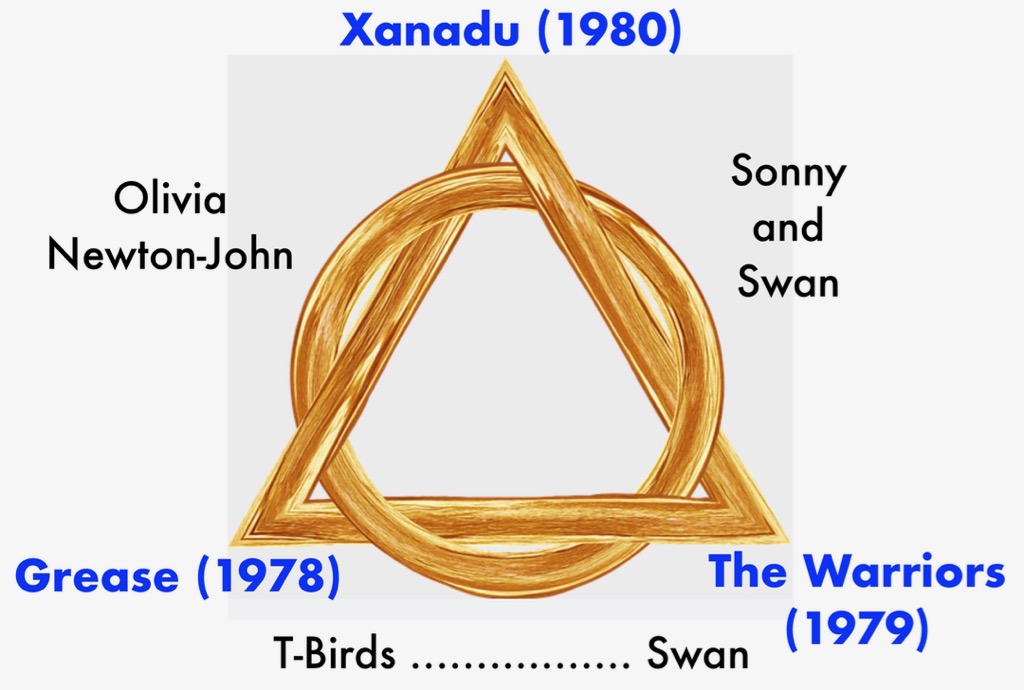
Interestingly, one of the T-Birds in Grease is called Sonny, derived from the English word son.
For Michael Beck to have the same unusual name Sonny in Xanadu indicates an exceptional association with the movie Grease.
Try and think of any other movie with a character called Sonny in it. You probably won’t be able to think of one. Well, here I’m pointing out a gang member from the T-Birds and the main male lead in Xanadu with the same unusual name.
It’s a strong, purposeful link, and it provides a little bit of extra confirmation to the son of Zeus (demigod) storyline in Grease.
Zeus transformed into a swan to be with Leda in Greek mythology, and Swan appearing in ‘Xanadu’ has similar connotations.
For Michael Beck to be known as Sonny and Swan in his two big movie roles (pretty much all he’s remembered for in the movie world – not a bad thing) is too much of a coincidence.
Did Olivia Newton-John want to meet him? Did Zeus set this all up?
Greeks associated the swan with the Greek Muses, which adds even more credence to ‘The Warriors’ and ‘Xanadu’ being purposely related.
Swan could no doubt have been a T-Bird in Grease. After all, a swan is a type of bird.
Believe me, all three of these movies are linked together extraordinarily.
Sonny enters Olympus and speaks to Zeus.
In Xanadu, Sonny enters the futuristic Olympus/Mount Helicon setting and speaks directly to Zeus, expressing his desire to be with the Goddess.
Zeus, however, won’t allow it, even though Kira (Terpsichore) wants to be with him.
Sonny – Hey Zeus! Zeus, you hear me!
Kira – Oh God
This is a direct parallel with Grease, proving that Grease is truly linked with the Olympian Gods and Goddesses. The only difference is that in the movie Grease, Zeus openly welcomes the two lovebirds.
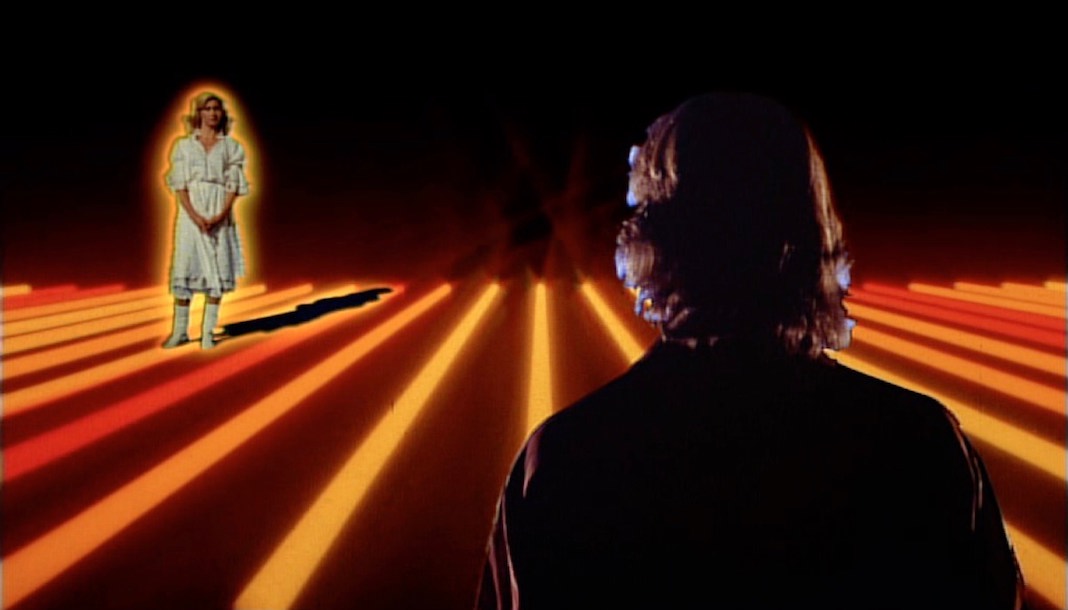
This film became Michael Beck’s swan song, his last great movie role, which is unbelievable considering the cult status of The Warriors.
Xanadu also has a cult fan base, especially with female fans. The Greek Gods and Goddesses truly work in mysterious ways.
Xanadu Film Blooper: In the scene where Kira surprises Sonny when he’s doing the final painting touches to her face and hair on the album cover, you will notice that he’s wearing an old faded blue shirt with some paint blotches on it. Then when the angle of the shot changes, he’s seen wearing a darker bright blue shirt. His left-hand sleeve is also rolled up, whereas before, it wasn’t. The shirt’s paint marks are clearly different.
Kira then tells Sonny that it’s not such a crazy idea and that he’s got a good eye. I wonder if someone planned this blooper on purpose?
Xanadu perfectly completes this trilogy of classic Greek myth movies. To me, it seems as if an Olympian Goddess was sent to point to paradise as being the final ultimate destination.
Special note: 14 Beautiful Actresses or Goddesses? Check to see who they are.
Keep this secret under your hat.
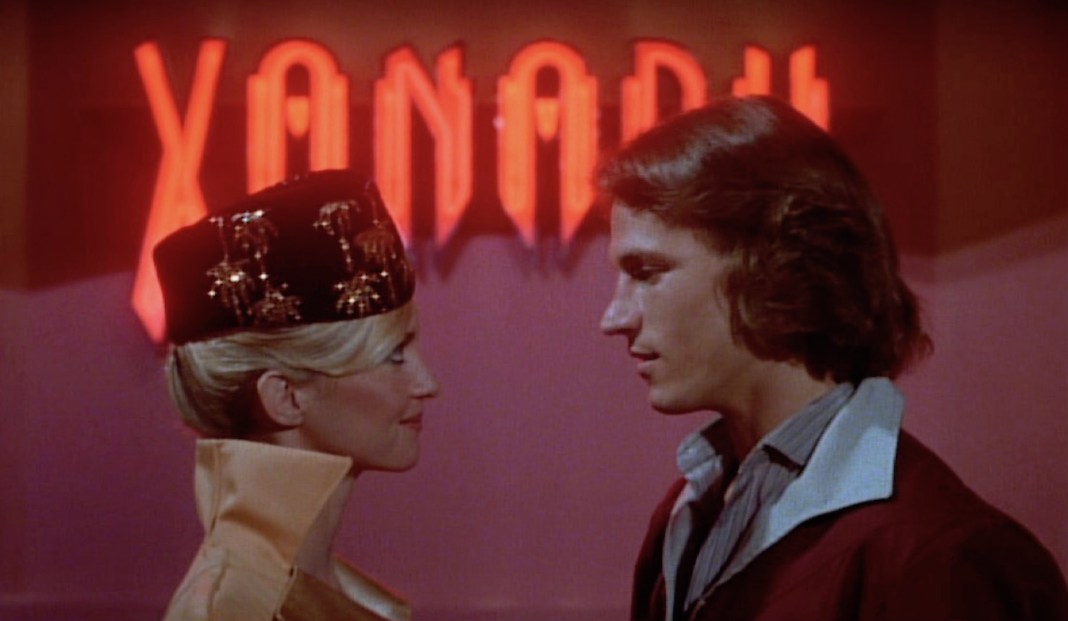
Message from the Greek Gods and Goddesses
The Olympian Gods have been able to channel through a subtle subliminal message via these three great movies. The message is:
Greek Gods and Goddesses will judge IF you Are worthy of entering eternal paradise!
That’s why the movie ‘Grease’ is so special.
Grease is the word
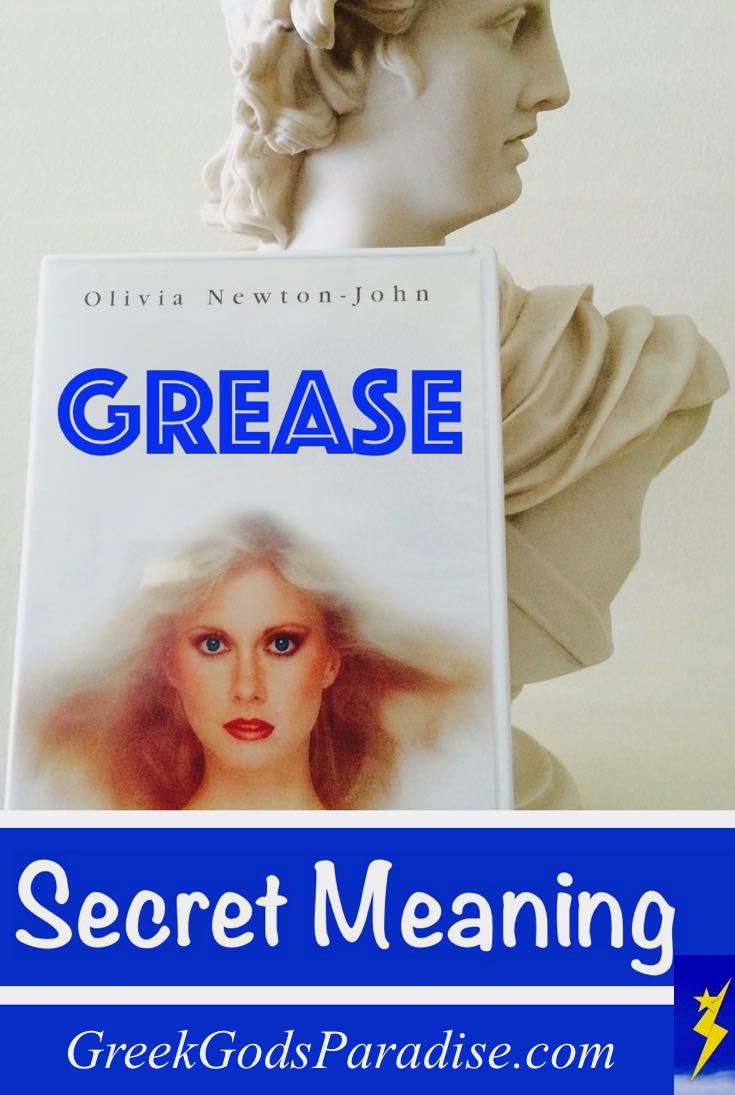
Pin it … Share it


